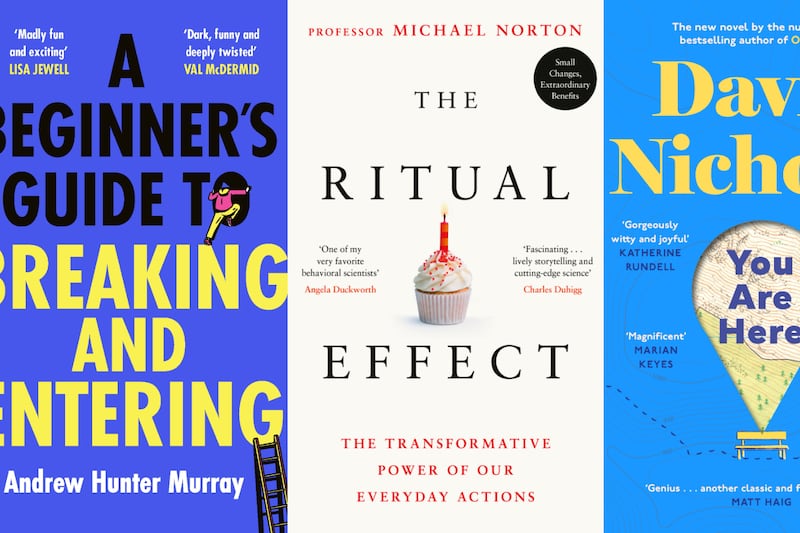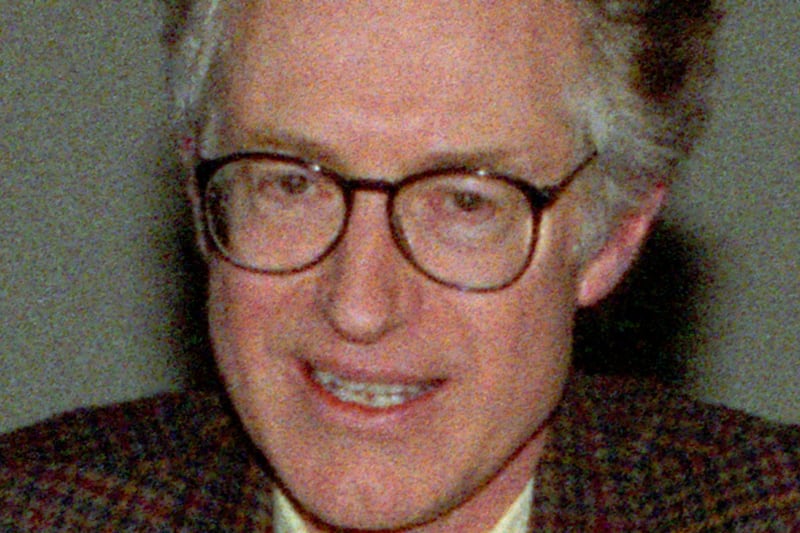HE HAS achieved massive success with his bestselling novels including One Day and Us and is also in huge demand for his screenwriting skills – yet David Nicholls admits he is constantly anxious.
Meeting the amiable author, who is softly spoken and naturally quite shy, you get the impression that he's more comfortable putting his heartfelt emotions, humour and nostalgic thoughts down on paper, than articulating them in person.
He blames the anxiety and sleepless nights on the fact he's currently working on a new BBC One four-part adaptation of his last novel, Us, starring The Night Manager and Rev's Tom Hollander, and at the same time embarking on a major book tour for his new one, Sweet Sorrow.
"I'm a wreck, actually. I feel if I can just make it to October then I can have a day without deadlines. I haven't had that for three years," Nicholls (52) confesses.
"I've always been anxious about work, missing deadlines and getting things wrong, and my work not being as good as it can be, but I don't want to overstate the anxiety because I am very lucky."
So, how does he cope with the worry?
"Not very well," he admits. "I haven't had a lie-in for 20 years. I don't know what I would do there. I can't sit around on a beach. I haven't relaxed in recent memory, but I do love my work. And I love going for long walks, often by myself."
It was Nicholls's third novel, One Day – in which one-night lovers spend 20 years finding and losing each other – which really raised his profile. Since it was published in 2009, it has sold more than five million copies worldwide, and spawned a hit movie adaptation in 2011 starring Anne Hathaway and Jim Sturgess. This followed an earlier big-screen adaptation of his first novel Starter For Ten, starring a young James McAvoy, Rebecca Hall and Benedict Cumberbatch, all of whom have gone on to mega-stardom.
Filming of Us starts this summer while Nicholls is on the book tour for Sweet Sorrow – a coming-of-age story set in 1997, about 16-year old school leaver Charlie Lewis who reluctantly joins an amateur dramatics group staging a production of Romeo And Juliet, so he can pursue the girl he's fallen for.
"It's a by-product of being deep into middle-age," Nicholls says of the subject matter. "I didn't want to write about getting older. I wanted to reset the clock and refresh things. I'd written a lot about the end of love, about divorce, and I wanted to write about the beginning this time."
Wanting to turn back the clock in his fiction is not part of a mid-life crisis, however, he points out.
"I'm just not as blase about middle-age as I thought I'd be. When I was a kid and I used to see grown-ups not want to celebrate their birthdays, I used to think, 'That's bizarre'. But you get to 52 and you think, 'Let's give it a miss this year'.
"I'm not buying sports cars or any of the cliches," the Hampshire-born writer continues. "I'm not having a mid-life crisis in the conventional way. I don't love [middle-age]. The danger of it is you become quite backward-looking and a little bit nostalgic or rueful about the past, and I don't want to do that."
Sweet Sorrow is funny, poignant and painful, evoking familiar memories of the feelings of uncertainty when you leave school, the gradual fading of old friendships and the all-encompassing emotions of first love.
Nicholls throws an extra element in as Charlie struggles to look after his miserable father, who has turned to booze and pills in the wake of his wife leaving him.
The author may not have had the traumatic family experiences of his fictional character, but he has felt the same insecurities of so many youngsters as they leave school.
"There's a bit of autobiography in the social insecurities, the worries about how you are perceived and about your friends, the self-doubt and awkwardness. It isn't carefree. There's also loneliness, anxiety and sadness."
Nicholls says he was a swot at school who was academically ambitious and wanted to go to university (he studied drama and English at Bristol before going to drama school in New York). For nearly a decade after, he was a struggling actor – his second novel The Understudy was partly inspired by his experiences.
"Over an eight-year stretch, I was employed for about three-and-a-half years, and the rest of the time I was working in bookshops or pubs. I was sitting around worrying in bedsits. It was a very stressful time," he recalls. "I really wanted to do something well but I wasn't a particularly remarkable actor. I was quite ordinary, or competent at best, and a lot of the time not even competent. I understudied a lot. I was often Waiter Number Two."
But the experience helped him as a scriptwriter and he went on to contribute to the ITV series Cold Feet, wrote the screenplays for the Starter For Ten and One Day movies, and later adaptations of Tess Of The D'Urbervilles, Far From The Madding Crowd and, most recently, Patrick Melrose – the five-part TV drama based on Edward St Aubyn's novels, starring Benedict Cumberbatch.
"You can see when actors are having a good time, when a line is too much or when something doesn't need to be said because it's clear in the performance.
"I find screenwriting much more stressful than writing a novel," Nicholls adds. "Writing fiction can be quite stressful if it's going badly and an idea isn't working, but when you are a screenwriter you have all of those fears and anxieties in a room full of 30 people, who all have notes, criticisms and things they want to change. It's much more confrontational."
Nicholls, who lives in north London, works in an office away from home and says he is able to switch off when he's with his family. He has two children, Max (13) and 11-year-old Romy, with his partner Hannah Weaver, a script editor. "I never wanted to tell the kids to be quiet outside my door. If I have to do something work-wise at home, I'll get up very early to do it, while everyone's asleep."
Despite his success, he admits there are always elements of his work that leave him dissatisfied. "The finished film or TV series is when you notice what's wrong, by which time it's too late. I wouldn't necessarily sit down and watch what I'd written for fun because I'd find it quite stressful. I'd think, 'Why did I put that joke in?', or, 'Why didn't I fight for that line?' You always have regrets."
He's not sure if Sweet Sorrow will be adapted for screen. "It's a tricky one because even though it's about teenagers, it's really for adults and theatre is a very hard thing to put on the screen, with a flashback structure. It may never be a film and that's fine – I just want it to be the best possible book."
:: Sweet Sorrow by David Nicholls is published by Hodder & Stoughton, priced £20.








